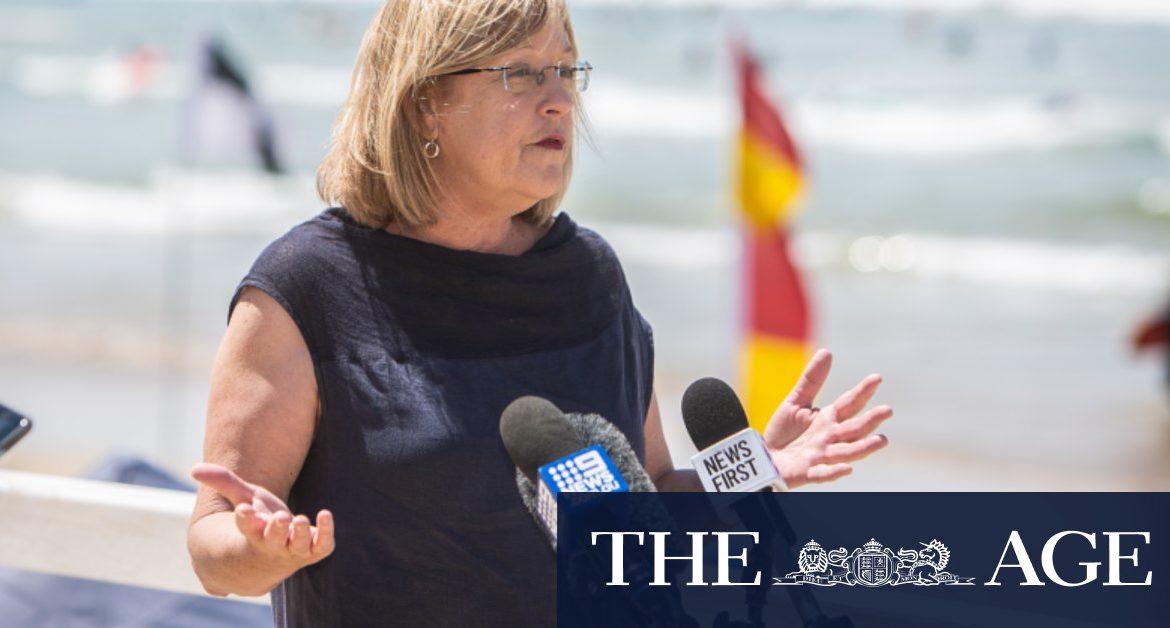Lifesaving Victoria will also double its drone capacity to monitor the spread of people across beaches and it will procure a second helicopter for aerial monitoring.
“We’re breaking records, unfortunately … I don’t like to break these kinds of records,” Ms Neville said.
Lisa Neville and Kane Treloar holding a Lifesaving Victoria drone at a beach in Ocean Grove.Credit:Scott McNaughton
“People have to take care on our beaches. We don’t want to see this trend continue for the rest of our summer.”
Ms Neville, who was a keen swimmer in her youth and needed to be rescued in her 20s, said some older men were complacent and unrealistic about their limitations in the water.
Some men from culturally diverse backgrounds encountered difficulty in the water because they did not grow up around waterways and might not have received swimming lessons, according to Ms Neville.
Signage around beaches was sometimes not understood by the non-native English speakers, she said.
Kane Treloar, Life Saving Victoria’s director of lifesaving services, said the focus of water safety had traditionally been on children. “What we’re asking Victorians this summer is to think about your grandparents [and] mum and dad,” he said.
Mr Treloar said people should swim only at patrolled waterways, swim between the flags and be accompanied by another person in case of a medical emergency.
The public education push will focus on the dangers of swimming while intoxicated. About 30 per cent of drownings involve alcohol.
The advertisements will encourage boaters to carry emergency equipment and urge rock fishers to wear life jackets. Half of all drowning deaths in the 2019-20 financial year were the result of unintentional entry into the water.
The $1.7 million will help place about 300 new lifesavers at Victorian waterways over summer.
The number of patrolled beach areas will increase and authorities will attempt to create more space between flags at popular beaches. Additional swimming areas flanked by flags may also be created.
Personal protective equipment will be provided to volunteers at 57 surf lifesaving clubs and lifesavers will be trained on COVID-safe practices.
Ms Neville said the increased space to swim at beaches would allow beachgoers to spread out and maintain physical distance from one another.
Start your day informed
Our Morning Edition newsletter is a curated guide to the most important and interesting stories, analysis and insights. Sign up here.
Paul is a Victorian political reporter for The Age.
Most Viewed in National
Loading







